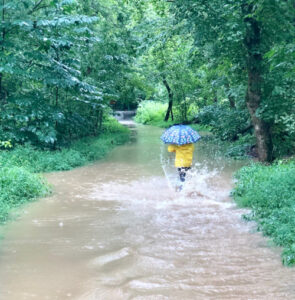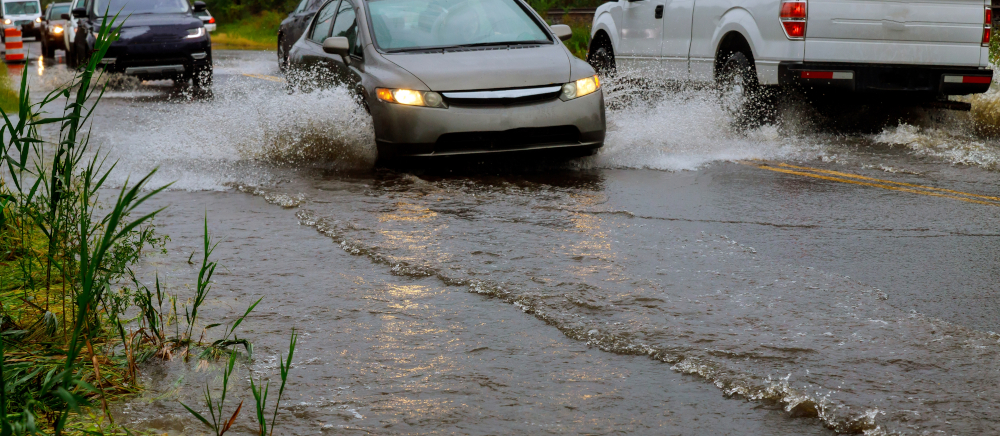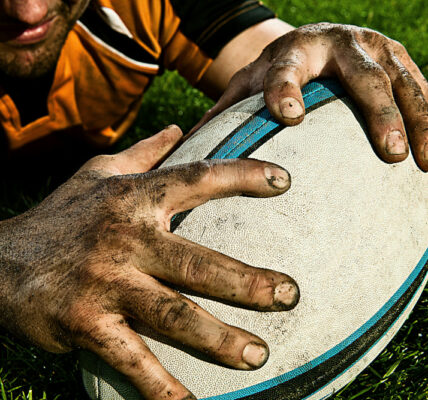KwaZulu-Natal has always had a powerful heartbeat for rugby. Whether in the roar of fans at Kings Park or the determined chants of schoolboys in Pietermaritzburg, the game has been a defining thread in the province’s social fabric. But in recent years, that thread was tested like never before. First came the COVID-19 pandemic, which brought seasons to a halt, shuttered stadiums, and drained club bank accounts. Then came the devastating floods of 2022, which upended infrastructure, displaced communities, and left many of KZN’s rugby institutions quite literally underwater. And yet, the game has endured.
In 2025, rugby in KwaZulu-Natal is not just surviving, it is staging a remarkable comeback. Across the province, from elite franchises to rural school fields, a story of resilience is being written. It is a story of clubs rebuilding, communities rallying, and rugby proving, once again, that it is far more than just a sport.
Picking Up the Pieces
When COVID-19 hit in early 2020, the immediate impact was sobering. Fixtures were cancelled. Training sessions ceased. Revenue from gate takings, merchandise, and bar sales vanished. For professional sides like the Sharks, this meant navigating new bio-bubble protocols and revenue restructuring. For community clubs and school teams, it meant existential uncertainty.
The flood disaster of April 2022 compounded this hardship. Record-breaking rainfall caused severe damage across eThekwini and surrounding districts. Rugby grounds were submerged, clubhouses collapsed, equipment was lost, and for weeks, rugby took a back seat to basic survival. For teams like Crusaders Rugby Club and South Coast Warriors, the destruction was not just physical, it was emotional.
Despite these setbacks, the will to return never wavered. By late 2022, the first green shoots of recovery appeared. Volunteer groups began repairing pitches. Donations of kit and gear arrived from around the country. And when the 2023 season opened, it was with a sense of quiet triumph, the return of rugby was not just about sport, but about reclaiming a sense of normalcy.
 In the most trying of times, rugby’s greatest strength has been its power to unite. Nowhere was this more evident than in the community-led efforts that emerged after the floods. Clubs opened their doors to displaced residents. Players swapped jerseys for gumboots, helping clear debris and distribute food parcels. Some clubs, like Zululand Rhinos, became temporary shelters before they returned to being sporting homes.
In the most trying of times, rugby’s greatest strength has been its power to unite. Nowhere was this more evident than in the community-led efforts that emerged after the floods. Clubs opened their doors to displaced residents. Players swapped jerseys for gumboots, helping clear debris and distribute food parcels. Some clubs, like Zululand Rhinos, became temporary shelters before they returned to being sporting homes.
The South African Rugby Legends Association (SARLA) and the KZN Rugby Union stepped in with critical support, launching fundraising initiatives and mobilising former players to rebuild morale. Their “Back to the Pitch” campaign, launched in early 2023, supplied rebuilding grants to over 20 affected clubs across the province, from rural Ulundi to the heart of Durban.
Even more importantly, many clubs discovered a renewed connection with their communities. Families who had never attended matches began showing up to cheer. Volunteers who had never played rugby started offering administrative help. The line between “club” and “community” blurred, an evolution that continues to deepen the social value of local rugby.
Mental Health and Recovery
One of the less discussed but deeply felt impacts of the pandemic and flooding was the toll on mental health. For young players, particularly school and university students, the sudden disappearance of rugby meant the loss of structure, motivation, and a vital support network. Coaches across the province reported rising levels of anxiety, depression, and disengagement during the lockdown periods.
In response, several clubs and schools began incorporating mental wellness into their rugby programmes. The Sharks Academy now partners with sports psychologists to offer workshops and one-on-one counselling, not just for elite athletes but also for under-19s. School programmes like “Strong Minds, Strong Players,” developed in collaboration with local NGOs, now form part of rugby development in districts like uMgungundlovu and Ugu.
The message is clear, resilience is not just physical. It is emotional, psychological, and deeply relational. And rugby, structured, communal, and grounded in teamwork, has become one of the most powerful tools for helping young people rebuild those inner foundations.
The disruptions of recent years also forced KZN’s rugby institutions to rethink how they operate. Many clubs, previously reliant on traditional sources of revenue and exposure, began to explore digital and entrepreneurial avenues. Live-streaming of club games, once rare, is now a regular feature thanks to affordable tech and partnerships with local production teams. Social media has also exploded in importance. Clubs like UKZN Impis and Jaguars Women’s Rugby have grown their digital followings dramatically, using Instagram and YouTube not only to market matches but to engage sponsors and showcase player stories. For small clubs, the internet has become a great equaliser, offering exposure previously reserved for top-tier teams.
Financial models have also shifted. With sponsorship tightening, many clubs have pivoted towards member-owned models, merchandise sales, and community events to fund operations. This grassroots innovation is creating more resilient, self-sustaining clubs, ones that may be better equipped for future uncertainty. While the initial fear was that the COVID and flood interruptions would result in a “lost generation” of talent, KZN’s development pipeline is proving remarkably robust. In fact, the pause seems to have sharpened the focus on talent retention and skills development.
High-performance academies in Durban and Pietermaritzburg have doubled down on talent identification, hosting open trials and intensifying scouting in township and rural schools. The KZN Rugby Union has also launched a “School-to-Club” initiative, providing clear pathways for promising under-18 players to transition into senior club environments without losing momentum. In the 2024 Currie Cup, at least six players from community clubs made appearances for the Sharks, an encouraging sign that the pathway from amateur to professional remains intact. For young players across the province, this serves as powerful motivatio,: you don’t need to come from an elite school to make it in rugby, you just need talent, discipline, and opportunity.
The story of KZN rugby over the past few years is one of trials, yes, but also transformation. The disruption caused by the pandemic and natural disasters has forced clubs, players, and communities to reassess their values and priorities. What has emerged is a more connected, resilient, and inclusive rugby ecosystem. Looking ahead, the focus is on consolidation and growth. There is a collective ambition not only to recover, but to elevate KZN’s status as a national rugby stronghold. That includes more support for women’s rugby, deeper investment in school and youth programmes, and greater emphasis on making rugby accessible to all communities.
Most importantly, there is a renewed understanding that rugby is more than a game. It is a vehicle for healing, identity, and hope. And in a province that has weathered storm after storm, hope is perhaps the most valuable currency of all.




